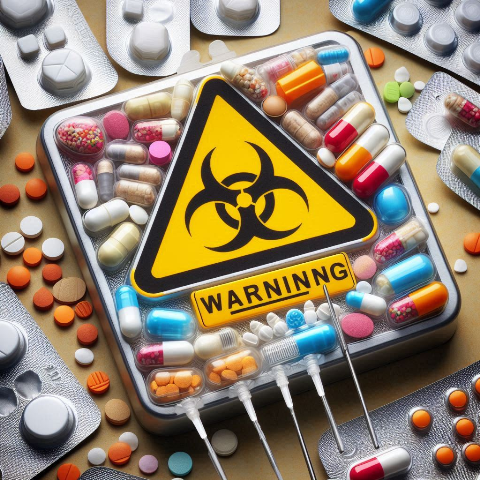The World Health Organization (WHO) has issued a medical product alert regarding falsified semaglutides, which are used to treat type 2 diabetes and obesity. The alert focuses on three falsified batches of the brand Ozempic, discovered in Brazil and the United Kingdom in October 2023, and in the United States in December 2023. WHO's Global Surveillance and Monitoring System (GSMS) has noted an increase in reports of falsified semaglutide products worldwide since 2022, leading to this first official notice after confirming several reports.
Dr. Yukiko Nakatani, WHO Assistant Director-General for Essential Medicines and Health Products, stated, “WHO advises healthcare professionals, regulatory authorities, and the public to be aware of these falsified batches of medicines. We call on stakeholders to stop any usage of suspicious medicines and report to relevant authorities.”
Shortage and Increased Falsification
Semaglutides, including the falsified Ozempic products, are prescribed for lowering blood sugar levels in type 2 diabetes patients and reducing the risk of cardiovascular events. These medicines are typically administered as weekly injections but are also available as daily tablets. Additionally, semaglutides suppress appetite and are increasingly prescribed for weight loss in some countries.
WHO has observed a rise in demand for semaglutides alongside reports of falsification. Falsified products may lack necessary active ingredients, leading to health complications from unmanaged blood glucose levels or weight issues. Some falsified injections might contain undeclared active ingredients like insulin, posing unpredictable health risks.
Cost and Accessibility Issues
Due to their high cost, semaglutides are not part of WHO-recommended diabetes treatments. This cost barrier makes them unsuitable for widespread public health use in resource-limited settings, where more affordable diabetes treatments with similar effects on blood sugar and cardiovascular risk are available.
WHO is currently developing a rapid advice guideline on the potential use of GLP-1 receptor agonists (GLP-1 RAs), including semaglutides, for treating obesity in adults as part of a comprehensive care model. GLP-1 RAs are a class of medicines used to lower blood sugar and support weight loss in diabetes treatment.
Individual Actions to Protect Against Falsified Medicines
Patients can protect themselves from falsified medicines by purchasing them with prescriptions from licensed physicians and avoiding unfamiliar or unverified sources, especially online. Checking packaging and expiry dates and ensuring proper storage—refrigeration for injectable semaglutides—are crucial steps.
Patients and healthcare providers should report any suspected falsified medicines to WHO via rapidalert@who.int to help mitigate this growing issue.











